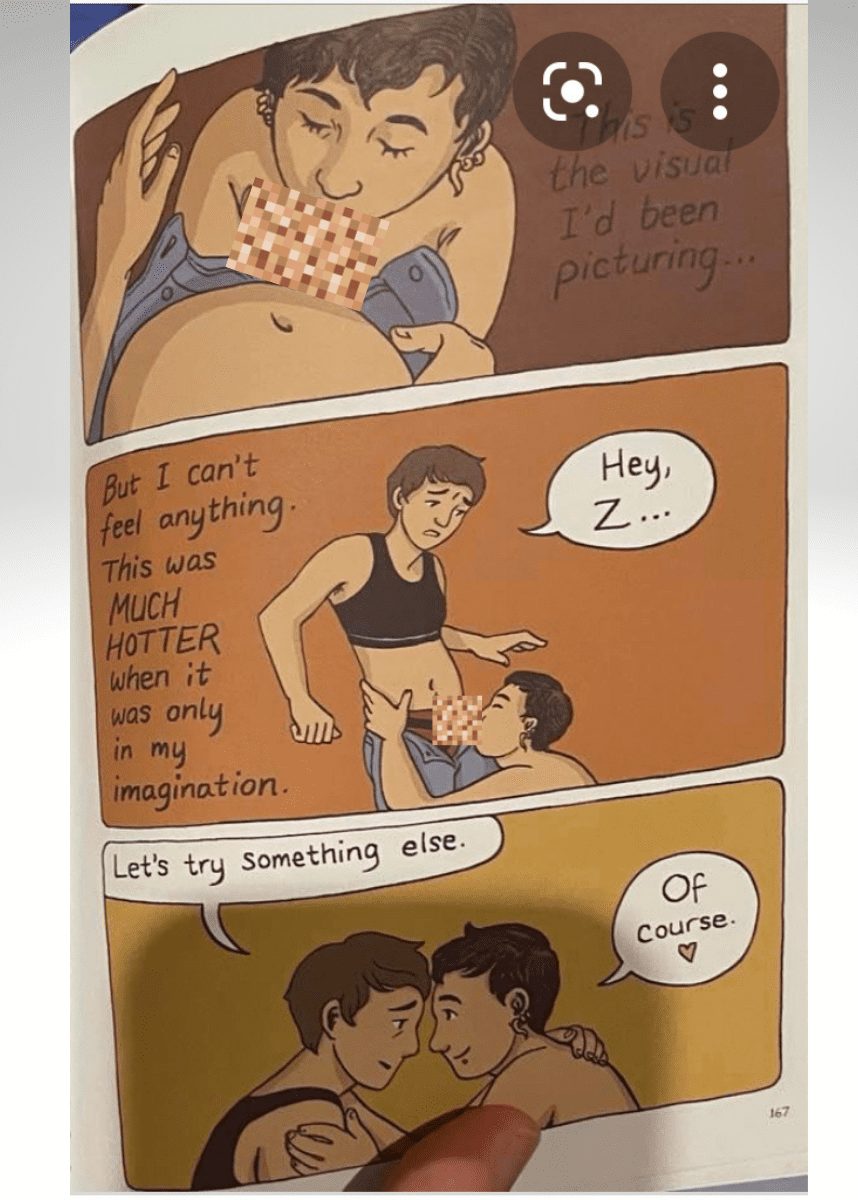When Dallas resident Cyrena Nolan heard rumblings about books needing to be banned in Dallas Independent School District (DISD) libraries, she chalked the complaints up to the worries of “zealots.”
Then she did some research.
“I have found out otherwise, and it concerns me greatly,” she told The Dallas Express.
The book that catalyzed Nolan’s concerns was the 2019 graphic novel Gender Queer: A Memoir.
As of February 21, according to the DISD library website, it is still available and listed as a book in multiple schools, including the Obama Academy library which serves kindergarten through 8th grade.
Nolan specifically pointed to a page in the book in which an illustration shows the main character, a boy, engaged in fellatio with another boy.
She said she ordered the book from Amazon to make sure the book “was what they said it was.”

Nolan commented, “I felt it was totally inappropriate. It deals with sex toys and things like that, and [the fact that it could] get into an 11-year-old’s hands — it shocked me.”
Gender Queer, written by Maia Kobabe, won an ‘Alex Award’ and a ‘Stonewall Book Award’ in 2020.
The book is in its fifth printing and has been translated into Spanish, Polish, Czech, and French (due out in 2022), according to Kobabe’s website.
Kobabe is self-identified ‘non-binary queer’ author and illustrator who holds an MFA in Comics from California College of the Arts. Kobabe’s “gender identity and sexual orientation journey” are depicted in Gender Queer, a 239-page graphic novel.
It was written, according to Kobabe, to make others who are struggling with gender identity feel less alone. Pronouns and hormone-blocking drug usage are also discussed in the book.
In October, the Comic Book Legal Defense Fund (CBLDF) released a statement in support of the book, asserting, “Given their visual nature, comics are uniquely susceptible to challenges. In the case of Gender Queer, challengers have taken a scant handful of out-of-context images to falsely assert that the graphic novel is pornographic and obscene.”
The statement continued, “Several school boards have subsequently decided to remove the graphic novel, often without following established challenge and materials review policies. Based on legal precedent, school boards have some leeway in removing materials, but they cannot do so simply because they don’t like the material or without following established procedures.”
Later the same month, Texas Republican State Representative Matt Krause wrote a letter to the Texas Education Agency requesting information on whether any of the state’s schools have the books listed on a 16-page spreadsheet, as well as the amount of money spent on them, BookRiot reports. Gender Queer was one of the books listed on the 16-page list.
The following November, Texas Governor Greg Abbott called on the state’s school boards to remove books he described as pornographic, after at least two state lawmakers asked officials to investigate the books in schools, CNN reports.
Nolan said she often goes to school board meetings to sit in and listen. However, at an October 2021 meeting, she came to the event armed with copies of pictures with nudity to show the trustees.
She said she registered for the public comment section of the board meeting a day ahead of the event, per school board policies, waited several hours to make her presentation, and then …nothing.
“I made a large poster (of the image in question) to the meeting, but they wouldn’t allow me to bring it in,” Nolan said. “They are very non-accommodating and don’t really want to hear from the public. It is the only place I have been where you speak to people’s backs. It is kind of like ‘We are going to do what we are going to do.’”
The Dallas Express contacted the DISD School Board trustees for comment via email, but at the time of press, none had responded to the request.
Gay Patrick, Director of Library Media Services at DISD, told The Dallas Express that the librarians in DISD libraries where Gender Queer is shelved are ‘reevaluating the book to check the book’s age appropriateness.’
Indeed, the CBLDF’s statement noted, “While some may find the content objectionable, as is their right, there are undoubtedly students and parents in the school system who support and want access to Gender Queer. Public schools and libraries have an obligation to support intellectual freedom and to meet the needs and interests of their entire community, including those who would like to read Gender Queer.”


